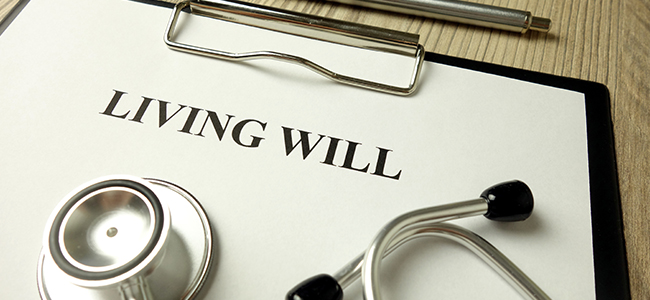
Living Wills: 6 Myths Busted
Health issues and mortality are facts of life, no matter how remote they may seem at the moment, nor how distressing they are to contemplate. For your family’s sake as well as for your own, make sure that you have a Living Will (or another form of “advance healthcare directive” such as a Durable Power of Attorney for Healthcare) in place. While you’re at it, check that your loved ones also make Living Wills.
6 Myths
Let’s get some pervasive myths about Living Wills out of the way. In doing so we’ll answer the question of why everyone, young and old, should have one.
Myth 1: “It’s not important, I already have a will”. Not true, your “Last Will and Testament” is another concept altogether. Certainly it’s a vital document, quite possibly the most important one you will ever sign, but it talks only as to what happens after you die. It won’t help you before you die.
In contrast, a Living Will applies while you are still alive, setting out what medical treatment you do and don’t consent to. It speaks for you when you can no longer speak for yourself. It addresses your right to decide whether or not you are to be kept artificially alive after you lose the capacity (physical or mental) to object.
Myth 2: “It’s euthanasia or assisted dying”. No, it’s a totally different concept. Euthanasia and “assisted dying” (or “medically assisted suicide”) are unlawful in South Africa. But your Living Will does not instruct doctors to actively intervene to end your life nor to assist you in committing suicide. In fact, it does the opposite, instructing that nature be allowed to take its course and refusing any active intervention to keep you alive artificially (possibly in pain and distress) after all hope of recovery has gone.
We must all decide for ourselves the extent to which we are comfortable with this concept. Discuss any conscientious or religious concerns with your spiritual advisor if you have one.
Myth 3: “It’s selfish”. In no way is it selfish. It helps your loved ones make the hard choices if and when they are called on to do so, and it spares them the distress of feeling responsible for making life and death decisions for you at the worst possible time. You relieve them of that burden by telling them what your decision is. It could also save your family a fortune in crippling and totally unnecessary medical expenses.
Myth 4: “It won’t be honoured so it’s pointless”. Advance healthcare directives have to date neither been specifically recognised in law, nor held unenforceable by our courts or legislation. A large body of opinion suggests that they can and will be enforced because of the general rule that patients must consent to treatment. Both the HPCSA (Health Professions Council of South Africa) and SAMA (South African Medical Association) have issued guidelines for honouring advance directives, with medical practitioners called upon to encourage their patients to put directives in place.
Myth 5: “It can wait until tomorrow”. No, it can’t. The most settled of lives can be upended in the blink of an eye. Traffic accidents, strokes, sudden onset illnesses (think covid!) and the like often don’t announce themselves at all.
Myth 6: “I’m too young to need one”. Nope. Those horror scenarios we mentioned above come out of the blue to young as well as to old. Express your wishes while you can – it’s too late afterwards.
What should be in your Living Will and who should you give it to?
There is no set format here but several standard templates are available. If you are given one or get one online, it’s important to have your lawyer configure it to set out clearly and lawfully your own specific needs and wishes, consistent with any religious or moral beliefs you may hold. This is your chance to set out what you want. Make it easy for your loved ones and healthcare workers to honour those wishes - don’t for example ask a doctor to actively end your life, that’s illegal.
Sign several originals, keep one for your own use and give the others to your loved ones, your healthcare practitioners, your lawyer and anyone else who might end up having to implement it or oversee its implementation (a close friends perhaps, or a retirement facility if you live in one).
Diarise to review and renew it regularly – the attending doctor must be satisfied that you were mentally competent when you signed the directive, and that your wishes haven’t changed in the interim.
What about a “Durable Power of Attorney for Healthcare”?
This is a document (also as yet untested in the courts) in which you appoint someone you trust, normally a close family member, as your substitute healthcare decision-maker should you become unable to make your own decisions. It’s a very personal decision whether to go with this concept or to just stick with a Living Will, but you could perhaps have both - a Living Will plus a power of attorney authorising your decision-maker to ensure that it is implemented.
Provided by Woodhead Bigby Inc. Attorneys
© DotNews. All Rights Reserved.
